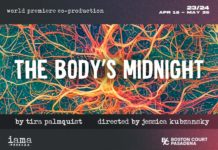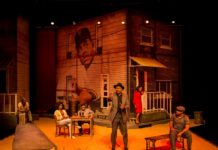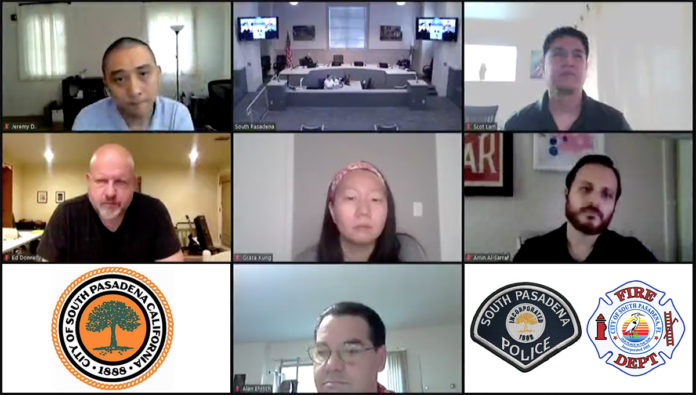
Everyone agrees that with the police reform debate sweeping the nation, the South Pasadena Public Safety Commission’s charter needs to be updated. But that’s where the agreement ends. The PSC completed a draft revision this summer. It was reviewed by a subcommittee of the City Council along with the Fire and Police chiefs and returned this week to the PSC with lots of changes.
With one member absent Monday, the PRC voted 6 to 0 to reject the Council subcommittee’s draft, saying it was insufficiently responsive to the changes the commission proposed. During the meeting District 5 Councilmember Diana Mahmud, who served on the Council subcommittee, told the PSC its changes didn’t adequately balance resource and liability concerns.
In addition, city attorney Teresa Highsmith told commissioners, “Your original draft suffered — unintentionally of course — from several areas that would have been violative of the law,” including its desire for more say in handling complaints against the police. Complaints stay in officers’ personnel files only if they are sustained and are subject to considerable state regulation, she said. Other portions of the PSC draft could not be implemented without “meet and confer” proceedings with the Police and Fire unions, or did not align with the city’s form of government.
Highsmith explained that as a ‘general law’ city, of South Pasadena cannot exceed the authority granted to it by the state. Charter cities such as Pasadena have greater flexibility, she noted.
Commissioners did not like the Council subcommittee’s recommendation to reduce the number of commission members from seven to five; to require that two of these have public safety backgrounds; or that members be required to get eight hours of police “ride-along” and “use of force simulator” training. All were the subject of extensive pushback.
The four public comments heard during the meeting were also opposed to the council subcommittee chart draft, especially to the downsizing of the commission. South Pasadena Youth for Police Reform said the PSC “should not be filtered through the city manager;” Mathew Barbato said Council draft authors are trying to “take control of the PSC…stack it with allies and manipulate the charter to give themselves more power to control the outcomes;” city council candidate Evelyn Zneimer said the PSC should include men, women, “people of color” and those with disabilities; and city commissioner Larry Abelson argued against requiring PSC members to have public safety backgrounds or training requirements.
“We are trying to provide a balance,” Mahmud told the commissioners. “We understand there is a desire to have greater citizen participation. We need to balance that against what is still a fairly lean department,” in which police officers — while among the highest paid city employees — are among the lowest paid police officers in the region. That’s why it’s impractical to expect, for example, a written annual report on homelessness from the police chief. “We’re trying to be responsive to a request for more input while also keeping an environment in which the police feel that they are being respected.”
Mahmud said many San Gabriel Valley cities contract with the LA Sheriff’s Department for public safety and that of the half-dozen-or-so cities with public safety departments, all but one are general law cities. Only San Marino and Claremont have police or public safety commissions and only Claremont’s is based on an ordinance that spells it out in detail.
Commissioner Alan Ehrlich wanted to know why Mahmud mentioned the sheriff’s department. He was unaware of any discussion to eliminate the South Pasadena police force.
“Unless the Utility Users Tax passes” in November she replied, “I don’t know that we would have a choice other than to go to the sheriff’s department,” which would “diminish the quality of life in our city” and offer “even less local control.”
PSC Chair Jeremy Ding said the commission is cognizant of constraints on city staff. But he said the provisions PSC included in its draft were in response to community demand. The average citizen “thinks it is unacceptable that we cannot get monthly or quarterly statistics or an annual report that doesn’t take more than nine months to get.”
Commissioner Amin Al-Sarraf complained staff simply “set aside” the PSC draft despite their time investment. It should have brought any legal inconsistencies to the PSC and explained them. “Instead we got a completely new document,” in which staff took out things PSC wanted and put in things it did not. He said the Council subcommittee should have worked with the Commission’s subcommittee.
In fact, the resolution the City Council initially approved June 24 specifically called on the Council subcommittee to work in conjunction with the PSC subcommittee.
The Council subcommittee’s work “was meant as no disrespect to the commission,” Highsmith said. She was only trying to save the attorney time it would take to generate an annotated, redlined version of the PSC’s draft. She assured the members the size reduction is a policy matter they are free to reject. “It’s not being stuffed down your throat.”
Commissioner Alan Ehrlich, who is running for city council, moved to reject the draft in its entirety. Given the recent departure of the city manager, the prospect of up to three new city council members being elected in November, and the fact the charter was previously revised less than a year ago, “it would be premature to do any new charter revision before a new city council is seated.”
The motion passed, but with an amendment Ding wanted to have the draft brought back at the PSC’s next meeting with details on how and why particulars of the PRC draft violate any laws or regulations. “As our current charter stands, we are extremely limited in what we can do.”
The PSC has frequently been told that it cannot put certain items on its agenda, Ding said. While there are legal constraints, he said the PSC’s draft gave it a bit more authority to receive reports about ongoing investigations than the staff version. “We wanted to have a little bit more transparency and accountability, as that is what the community is asking for.” He said the city should provide more complete explanations for why the PSC cannot address specific matters.
Mahmud said one reason to constrain updates received by the PSC on police complaints or investigations is liability. “It would not be in the city’s interests” to provide updates, she said.
Ding said the city needs to balance transparency with the potential expansion of liability.
The staff draft restored section (i), a provision of the existing charter that the PRC had removed and which states that any PSC recommendations “shall be made to the City Council at the discretion of the city manager’s office.” However during her presentation, Highsmith said the staff draft would for the first time allow the PSC to make policy recommendation to the chiefs, the city manager and the Council.
Ding wanted clarification. The PSC “could spend months and months and hours and hours–which is what we’re doing on the police reform plan,” send it to the city manager’s office “and if the city manager simply doesn’t like it, it will never see the light of day.”
Mahmud said the restoration of section (i) “was borne out of the city manager’s concern that sometimes commissions go off on their own and direct staff to do stuff.”
On reflection, Highsmith said section (i) could be entirely removed because it is duplicative of the city’s recently adopted ethics code.
Blurred during the discussion was the distinction between the PSC’s authority to make requests of the staff — which must go through the city manager, and the details of its authority to make policy recommendations to the city council.
The Council subcommittee draft also would have given the PSC authority to: review police and fire policies and procedures; act as a forum to hear community concerns and complaints; receive extremely restricted reports on investigations; review and comment on annual reports on best practices such as recruitment and training, as well as on updates on crime trends, statistics, prevention and police customer service and community policing programs. It would be allowed to monitor data on police stops, arrests, citations, interviews, and police logs and to take on other actions assigned by the city council or city manager.
Highsmith said the changes would remove analysis of traffic and pedestrian safety and code enforcement from the PSC, as these are the purview of other commissions.


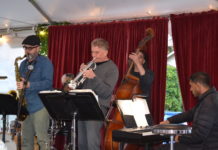
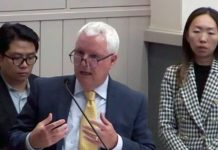

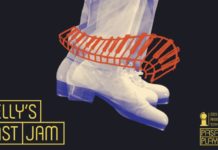







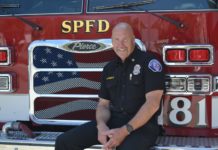






.png)





